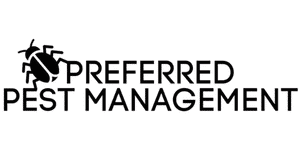How to Make Homemade Bug Spray: A Step-by-Step Guide
Bug sprays are essential for protecting your home and garden from pesky insects. If you prefer a natural alternative to chemical-laden products, making your own bug spray is a simple and effective solution. In this detailed guide, we’ll show you how to create a homemade bug spray using natural ingredients. This spray works well for both indoor and outdoor use, including on vegetable plants, and helps repel mosquitoes and other common pests.
Ingredients for Homemade Bug Spray
- Essential Oils: Essential oils are the primary ingredients in natural bug sprays due to their insect-repelling properties.
- Lemon Eucalyptus Oil (10-15 drops)
- Lavender Oil (10 drops)
- Peppermint Oil (10 drops)
- Tea Tree Oil (5 drops)
- Citronella Oil (10 drops)
- Recommended Brands: Plant Therapy, Now Foods
- Carrier Oil: A carrier oil helps dilute the essential oils and makes them safer for application.
- Witch Hazel (1/4 cup)
- Distilled Water (1/4 cup)
- Jojoba Oil (1 tablespoon)
- Other Ingredients:
- White Vinegar (1 tablespoon)
- Vodka or Rubbing Alcohol (1 tablespoon)
- Spray Bottle (8 oz or larger)
Step-by-Step Guide to Making Homemade Bug Spray
- Combine Essential Oils: In a small bowl, mix the essential oils together. This combination of oils provides a broad spectrum of insect-repelling properties.
- Add Carrier Oil: Add the witch hazel and distilled water to the essential oils. Mix well.
- Incorporate Additional Ingredients: Add the white vinegar and vodka (or rubbing alcohol) to the mixture. These ingredients help preserve the spray and enhance its effectiveness.
- Transfer to Spray Bottle: Pour the mixture into a spray bottle. Shake well to ensure all ingredients are thoroughly combined.
- Label the Bottle: Clearly label the spray bottle with the ingredients and date of preparation.
Tips for Using Homemade Bug Spray
- Application:
- Spray the mixture onto exposed skin and clothing before heading outdoors.
- For garden use, spray directly onto the plants, focusing on the undersides of leaves where pests are likely to hide.
- Frequency: Reapply every 2-3 hours for best results. For garden use, spray every few days or after heavy rain.
- Precautions:
- Keep pets and children away from treated areas until the spray has dried (about 30 minutes).
- Avoid using the spray if rain is expected, as it will wash away.
- Wear gloves and protective gear when applying the spray to avoid skin irritation.
- Storage: Store the bug spray in a cool, dark place to maintain its potency. Shake well before each use.
Pests Targeted by Homemade Bug Spray
This natural bug spray is effective against a variety of pests:
- Mosquitoes: The essential oils used are particularly effective in repelling mosquitoes.
- Ants: Peppermint and tea tree oils help deter ants from entering your home.
- Aphids: Citronella and lavender oils can keep aphids away from your plants.
- Flies: Lemon eucalyptus oil is known to repel flies.
- Spiders: Peppermint oil can deter spiders from making webs in your home.
Treatment Process for Different Pests
- For Home Use: Spray around windows, doors, and other entry points to prevent pests from coming inside. Focus on areas where pests are commonly found, such as kitchen counters and bathrooms.
- For Garden Use: Spray directly onto plants, especially on the undersides of leaves where pests tend to hide. Apply in the early morning or late evening to avoid leaf burn from the sun.
- For Pets: Lightly spray on your pet’s fur, avoiding the face, to protect them from pests like fleas and ticks. Always consult with your vet before using any new products on pets.
When to Call a Professional
While homemade bug sprays can be effective, they may not always eliminate severe pest problems. If you find that these natural methods aren’t resolving your pest issues, it’s time to contact a professional pest control company.
By following this guide, you can create a safe, effective, and natural bug spray to protect your home and garden from pests. However, for persistent or severe pest problems, don’t hesitate to seek professional assistance to ensure complete eradication.
Author: Griffin Thomas

About The Author
Griffin Thomas is the owner of Preferred Pest Management in Plano, TX. Griffin grew up in the pest control industry with a grandfather who has operated a pest control company in the midwest for 30+ years. Griffin decided to launch his own pest control business in 2020 after losing his pest control job during the covid pandemic. Griffin takes great pride in continuing to learn the cutting edge chemical technologies in the pest control industry to help home and business owners keep their investments pest free.

